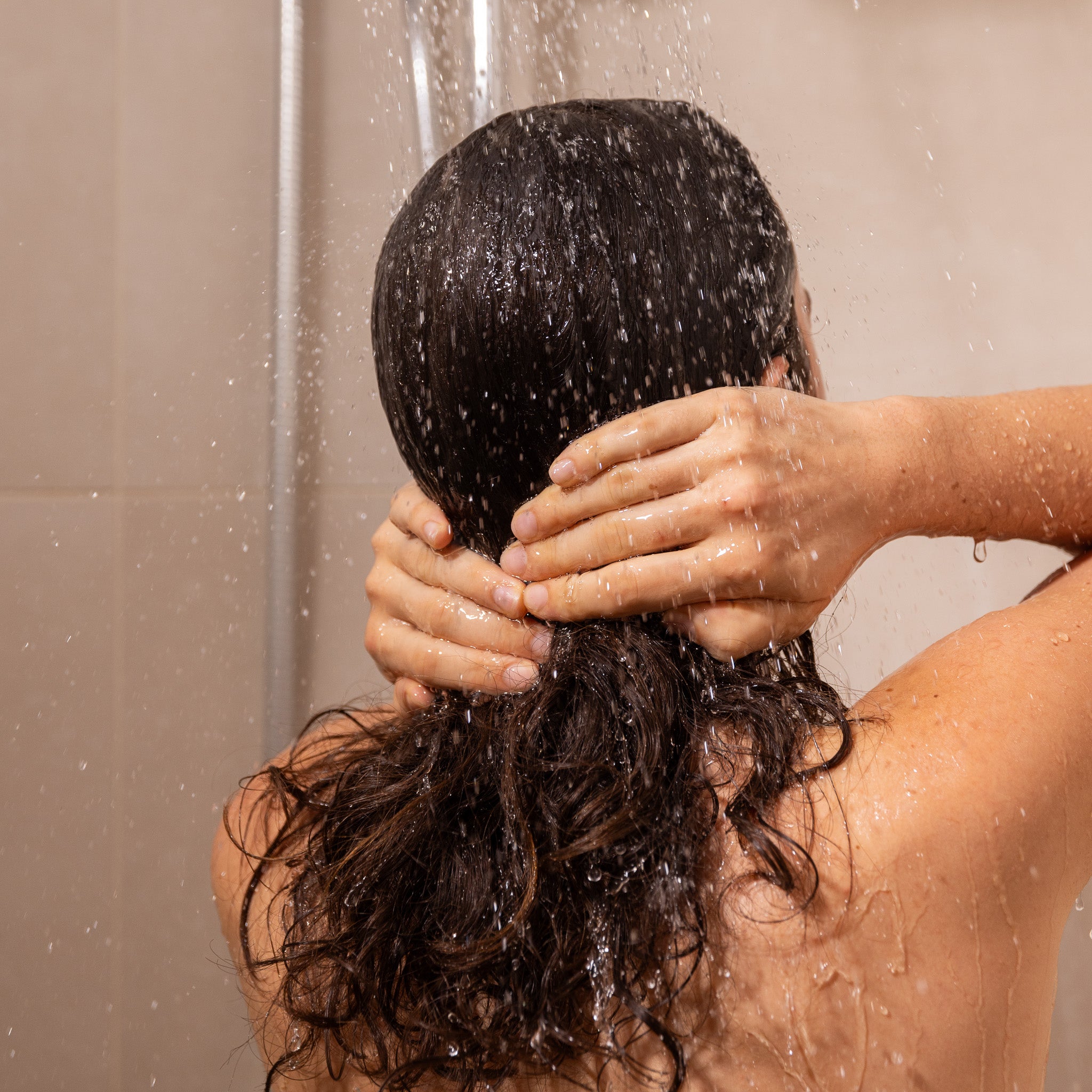Dry Skin
Skin that’s drained of moisture. Feels tight, flakes, itches and cracks



Why it happens
Chlorine is a strong disinfectant. In warm water it strips the thin lipid layer that locks moisture into skin. A stripped barrier lets water escape (transepidermal water loss), leaving skin feeling dry and tight straight after a shower.
How filtered water helps
Removing chlorine keeps the lipid layer intact. Most people report softer skin within a week of using!
Ezcema Flare-Ups
Sensitive skin flares when chlorinated water strips its barrier.
 Reference 1
Reference 1
 Reference 2
Reference 2
 Reference 3
Reference 3
Sensitive skin flares when chlorinated water strips its barrier.



Why tap water makes it worse
Eczema‑prone skin already has a weakened barrier. Chlorine and hard‑water minerals can further irritate and alter the skin’s microbiome. Hot chlorinated water often causes stinging or redness during flares.
How filtered water helps
By removing chlorine, the shower becomes less abrasive. Lots of Aussies battling eczema say showers no longer sting and flare‑ups calm faster after installing a filter.
Acne
Metals and pH shifts create a perfect pore-clogging storm.
 Reference 1
Reference 1
 Reference 2
Reference 2
 Reference 3
Reference 3
Metals and pH shifts create a perfect pore-clogging storm.



Why tap water makes it worse
Metals like copper and iron can oxidise on the skin, clogging pores. Chlorine shifts the skin’s pH, encouraging acne bacteria to thrive.
How filtered water helps
Filtered water keeps pore‑clogging metals off your face and supports a balanced pH, complementing any topical acne routine you already follow.
Itchy Scalp & Hair Loss
A scalp that never feels settled and too many strands left behind on the shower floor.



Why tap water makes it worse
Chlorine strips away the natural oils that keep your scalp calm, while copper and iron from old pipes can oxidise on the skin and around hair follicles. The result is that tight, itchy feeling and more hair collecting in the drain than you’d like to admit.
How filtered water helps
Without chlorine and metals, and your scalp keeps its natural balance. Follicles stay clear, itch dies down, and more strands stay right where you want them... on your head.
Steam & lung exposure
Hot showers turn chlorine into gases you inhale deep.



Why tap water makes it worse
When hot chlorine reacts with pipe debris to form volatile by-products (THMs). These gases release in shower steam and travel deep into the lungs (especially in small bathrooms).
How filtered water helps
Cutting chlorine at the shower head stops THM formation, so the vapour you breathe is almost pure water. A gentler start for sensitive lungs and little ones.
Hormone Disruption
Trace chemicals can scramble the body’s natural rhythm.



How tap water makes this worse
Chlorine by-products and trace metals are recognised endocrine disruptors. Tiny doses add up when you shower twice a day, every day, for years.
How filtered water helps
Removing those compounds at source reduces a major daily exposure path, giving your body one less chemical signal to sort out and flush.


